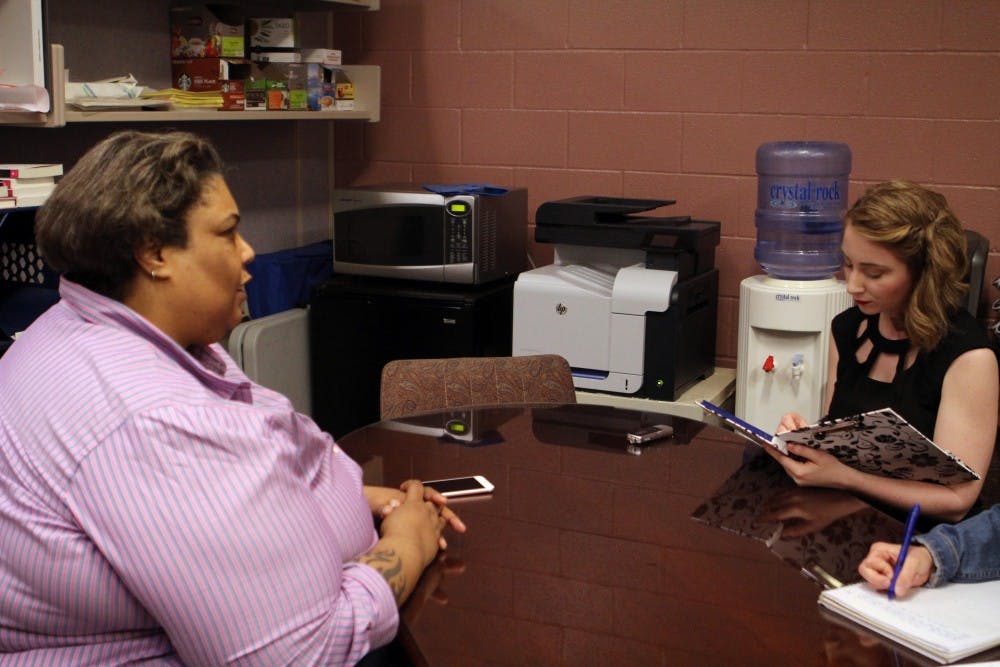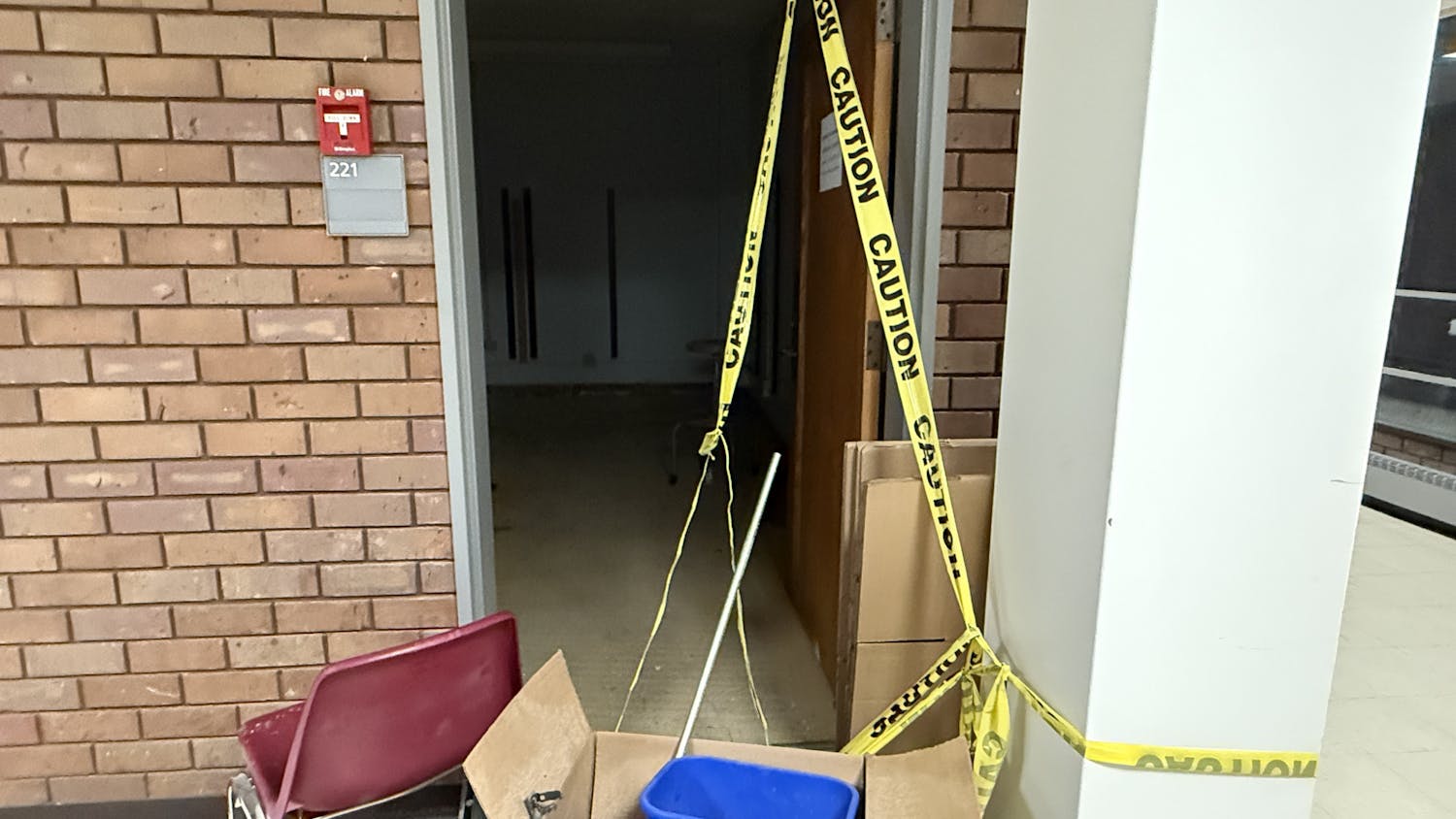Q: I recently wrote a column about the importance of intersectionality in feminism—
What does intersectionality mean to you and how can others make their feminism more intersectional?
A: When I think of intersectionality it is, you know, a very unwieldy word— it’s not an accessible word, it’s very jargony. But it is the idea that we’re not just women. We inhabit multiple identities, so we need to think not only of our womanhood, but the reality that not all women are created equal and not all women have the same experiences. So, we have to think of other identity markers like class, race and ethnicity, gender identity, faith background and all of these things that make us human and think about how these things affect other women when we’re talking about equality and what it will take to achieve equality. And I think one of the most important ways women can be more intersectional is by recognizing that women are different. We do have this one thing in common, but we also need to think about our difference. So I think, just starting there, and then recognizing that just because something might not be an issue for you, doesn’t mean it’s irrelevant to you, and that maybe you should fight for other people just as hard as you would fight for yourself.
Q: Feminism is often perceived as a dirty word. What does feminism mean to you? How can we shift away from the stigma on feminism?
A: I no longer answer the question “what is feminism?” I really don’t. Because we know what feminism is at this point, and people who don’t in 2017 are people who are being willfully ignorant. So I think we have to stop asking that question and really focus on what are ways in which we can be feminists in our everyday lives and fight for the issues that matter most.
Q: So you were saying, rather than asking what feminism is, we need to shift the conversation to how people can be more feminist in their everyday lives. What are a couple of examples of things that people can do in order to be more feminist?
A: I think day-to-day people can give to their communities more, we can volunteer for organizations that help others and it doesn’t even necessarily have to be women focused though that’s certainly a good place to start. I think you can vote—voting is one of the most powerful things anyone can do. Make sure you’re voting in the best interest of women, and that means voting for candidates that are pro-choice. That’s really, really important. A lot of people say “can I be pro-life and be a feminist?” Yes and no. Choice is a hallmark of feminism. But it’s just allowing someone to have that choice. It’s not choosing for yourself—if you don’t want an abortion, don’t get one. But don’t think we should legally mandate that no one can get an abortion just because you don’t believe in it. That’s not how it should work. And so I think voting and understanding what’s really at stake with your vote is a key thing. Also, making sure you’re advocating for yourself in the workplace for equal pay. And I don’t say that in a fairytale way—the reality is that sometimes you can’t compromise your paycheck for that, but it’s always good to advocate for that and to encourage others to advocate for that and to bring men into this fight. Because it’s not only women who need to be demanding equal pay—it’s men who need to stand up and say, this woman who sits next to me is doing the exact same work as well as I do and deserves to be paid the same.
Q: Many of your works focus on issues of race, gender equality and sexuality. Many college students are currently tackling these issues. What advice would you give to UB students coming to terms with their race, gender and/or sexuality?
A: I think it’s important to have a good support system and to seek one out—and that’s advice for everyone, honestly. It’s important to believe in your self-worth, to know that you have inherent value because of who you are and your identity, and to recognize that there’s no right way, there’s no perfect way to be who you are. And so if you find that you do not fit people’s expectations of the communities that you’re a part of, that’s OK. It’s OK to be different and imperfect and a lot of times when you are first coming into a community it’s hard to believe that.
Q: In your January book Difficult Women you shed light on sexual assault. According to the Rape, Abuse and Incest National Network, 23.1 percent of college women and 5.4 percent of college men experience sexual assault while in college. Only 20 percent of survivors report to law enforcement. What advice would you give survivors? How can they heal?
A: That’s a difficult question, but in general I tell survivors there’s no right or wrong way to deal with what you have been through. It’s important for people to hear that because some people sometimes have very rigid opinions about what you should do when you’ve been assaulted—you should call the police, you should press charges—and that’s not the answer for everyone. And it’s OK if that’s not the answer for you. But also if you can, do come forward and do report what happened to you. The more that we report these crimes, the more the people who commit these assaults can be identified and brought to justice either formally or informally. And again, support. Find a support system. Find people who will give the time and space to heal and who will love yourself through something that can be very painful.
Q: How “bad” does a feminist have to be before she’s not really a feminist anymore?
A: I don’t grade feminists.
Q: So what would you say makes someone a feminist then? Just identifying as one?
A: It’s a tough thing because there are lots of people who claim feminism that aren’t necessarily feminists in my mind but I’m just one person; I’m not president of the feminist council. But I think in general you believe that women are equal to men. It’s really about equality, advocating for equality and resisting misogyny, both internalized and externalized. These are challenging things to do but also they are not. I really feel like feminism should be a default setting of humanity for people across the gender spectrum.
Maddy Fowler is the assistant news editor and can be reached at maddy.fowler@ubspectrum.com





